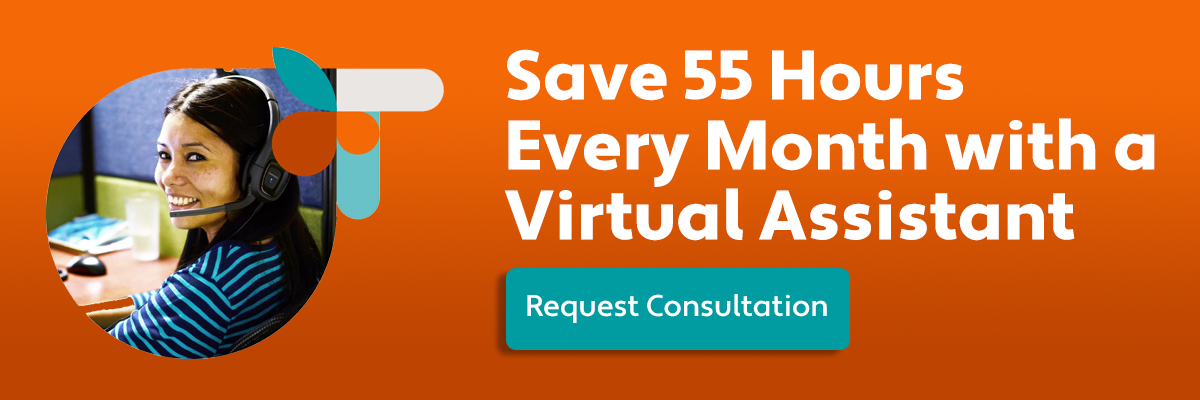The majority of this article was originally published in Inc. Magazine under the title "3 Trends That Will Change the Way We Work in 2017: the Workplace is Getting Better for Everyone Thanks to New Expectations" by Drew Hendricks.
Technology is rapidly changing the way we work and live, so it's no surprise that the workplace has started to catch up with some innovative new approaches to getting things done. Whether it's changing where people work, the work they do, or who does the work, 2017 will be marked by several key shifts in the traditional workplace.
According to research from ComPsych, 20% of work-related stress comes from trying to foster work life balance. As a result, executives are looking for solutions that can help them achieve better work life balance.
Executives at large multinational corporations often have entire teams to help them manage their productivity, but founders of small to midsized businesses often do not have the budget for an in-house assistant. Many are turning to lower-cost solutions like managed virtual assistant services and technology hacks to help support their effectiveness.
Read more below to discover what they are doing to increase their productivity and efficiency.
There is a growing trend among executives to consider alternative ways their employees can conduct their work.
As Richard Branson put it, "Too many companies are too keen to put multitudes of rules and regulations on their staff. Not only does this stifle flexibility, it suggests a lack of confidence in your team to do their jobs as efficiently and effectively as possible. Give your people freedom to be independent, and your business will reap the rewards."
It would seem that more and more business leaders agree with Branson, as 62% of Fortune 500 companies shared that they have employees who work remote part-time or full-time.
Virtual Workers Keep Executives Lean and Productive
As the world becomes more connected, it is easier than ever to leverage the global workforce to contribute to organizational effectiveness.
Eric Taussig, founder and CEO of Prialto — a company that provides managed virtual assistant services for executives and founders, explains why virtual executive assistants are growing in popularity:
"Managing administrative resources is difficult for most high-powered executives. Getting good at it is a distraction from their key focus. Many executives find it hard to scope out what exactly to delegate. Others find it difficult to slow down and explain the work to be delegated."
Until recently, the solution for executives was to use technology hacks to try and increase productivity. But the emergence of virtual assistant services has made it possible for them to hire a virtual assistant who is trained, managed, and dedicated.
More and more leaders are recognizing that managed solutions save valuable time that should be spent on more important tasks. Employees require training, time, and developmental effort...yet administrative support should streamline executive performance not add another set of tasks.
Taussig shares:
"Managed administrative services help executives get productive with an assistant more quickly, peeling off the work that they otherwise might never get around to delegating. They also maintain continuity so that you are not left working to recruit and inspire a part of the workforce that is not core to moving your company forward."
Flexible Workplaces: A Priority for Millennials and GenZ
Research from Global Workplace Analytics shows that over 80% of the US workforce would like to telecommute. A major factor driving this shift is the growing number of social technologies that enable collaboration in virtual settings. Add in the fact that the first generation of digital natives is maturing in the workforce and it makes sense why workers are looking for a change in where they can get their work done.
A survey from Queens University of Charlotte found that 49% of millennials support the use of social tools to boost workplace collaboration. Gen X'ers weren't too far behind at 40%. Additionally, 40% of the millennials surveyed said they would even pay out of pocket for social tools if they improved efficiency. Past perceptions of virtual workers included concerns about laziness and assumed that people wanted to work from home because it was easier to work less. The data would indicate otherwise, as most millennials believe that enabling work away from the office makes them more efficient.
AI will make us more efficient employees
Fears about Artificial Intelligence and automation are becoming the norm in the workforce, with doomsday predictions about AI completely replacing the human workforce. While the way we work may need to be rewritten down the road, for the time being it would seem that AI might actually help individuals become more effective and defend the value of human output.
A major hedge fund, Bridgewater Associates, is actively using AI solutions to help increase the productivity of its employees. Rating systems, data analysis, and recorded meetings all help create a data-driven map for decision making. So much so that the firm is considering handing key management tasks over to machines. Again this information might cause concern for managers, but Devin Fidler of the Institute for the Future explains that AI "needs human decision making to set objectives."
CONCLUSION
The key for organizations will be to honestly assess whether or not current practices can keep up with global trends. If not they will need to consider what solutions are consistent with their mission and vision, and implement them with conviction.
As the above trends gain steam in 2017, employees will be looking for companies that provide the kind of workplace they want to work in; investors will be evaluating how effective companies are compared to their expenses.
The good news is, these solutions will help companies remain competitive in the global economy both when it comes to acquiring talent and securing investments and new customers.
Ready to hire a virtual assistant? learn more today!

